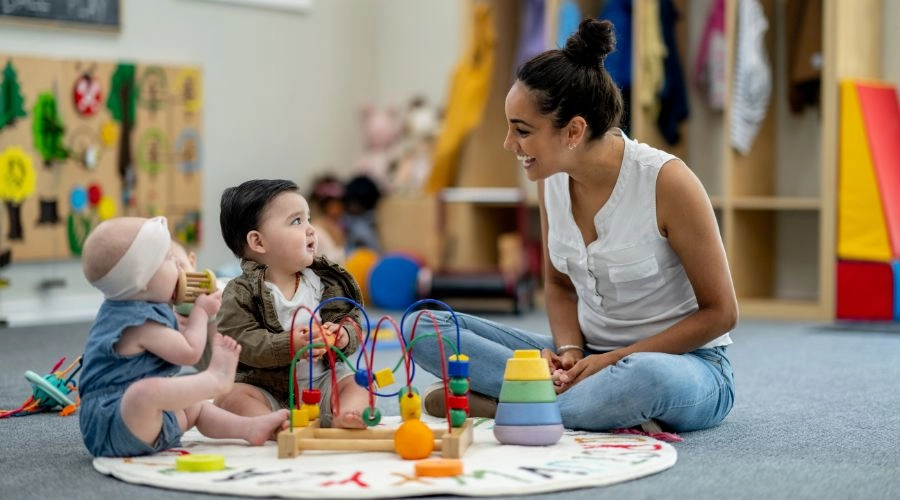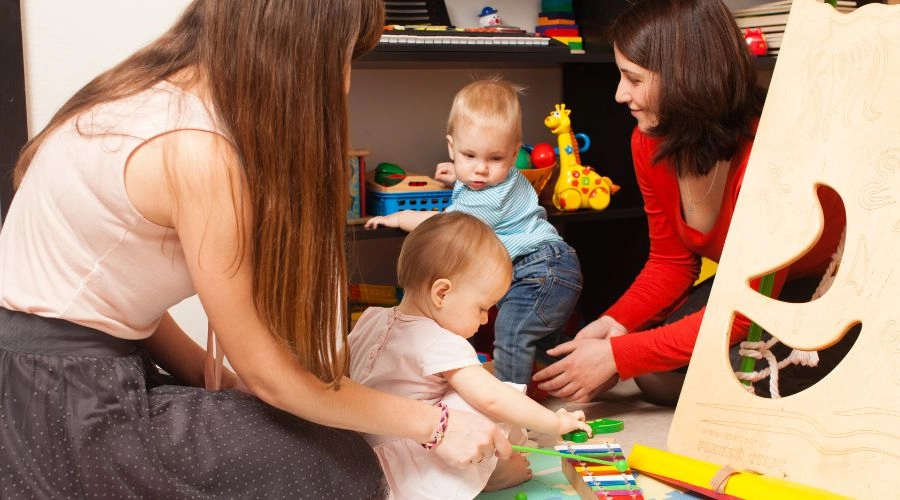People are a mess. We don’t come into this world with the goal of putting things in order. If you’ve been a parent for more than 5 seconds, you already know this. And if you have a toddler or preschooler, you know how hard it can be to get them to clean up their toys and do their chores.
So, what should a parent do to get their child to do chores and clean up after themselves? We’re glad you asked.
How to Get Your Child Going
We’ve said this before, and we’ll say it again: kids and adults aren’t that different. Think back to the last time you had to do something you didn’t want to do. Did you moan and groan a lot, either in your head or out loud?
The difference is that most adults know how to get themselves to do things they don’t want to do. But that was neither easy nor natural. It took a long time.
Here are some ways to get your child to be self-motivated and do things they don’t want to do, like chores.
- Cut distractions. Most of the time, kids don’t want to do their chores because they’d rather do something else that’s way more fun. Turn off the TV, put away the tablet, or put away the toys that are keeping your child from doing their chores. Tell them they can go back to the activity as soon as they finish their chores. Viola! Get going right away.
- Do chores as a group. If your child sees you doing your chores, it’s much more likely that they’ll want to do theirs too. Do each of your jobs together, and maybe…
- Set a time limit. Check to see if your child can do their work in the right amount of time. One problem could be that people rush through their chores and don’t finish them. If they mess up, don’t be afraid to throw a flag and make them do it again. Kids who are too slow can also benefit from time limits. Telling your child, “You have 20 minutes to do your chores or you’ll go to bed early,” can get them moving.
Why the trouble is worth it
Some people might wonder what all the fuss is about and if kids should have to do chores at all.
Even though they may have good intentions, research has shown that this is bad. One study found that starting to do chores at a young age was the best way to tell if a young adult would be successful.
Julie Lythcott-Haims, a former dean at Stanford University, says, “When young people are expected to roll up their sleeves and help out, and to ask how they can help out around the house, it makes them more likely to help out in other places, like the workplace.”
Chores for Different Ages
Children aren’t ready to cut the grass as soon as they can walk. Here is a list of jobs that toddlers and preschoolers can do. (These chores go together; anything a 3-year-old can do, a 6-year-old can do, too.)
From 2 to 3 years old, kids can:
- Put away their toys.
- Fill the food dish for the pet.
- Use a hamper to hold their clothes.
- Clean up any spills.
- Placemats should be out for dinner.
From 4 to 5 years old, kids can:
- Get them to bed.
- Empty the trash cans.
- Wipe the table down.
- Water the plants.
- Spot clean with a hand-held vacuum.
- Wash dishes made of plastic in the sink.
- Put some cereal in a bowl.
- Help with making food (with supervision).
- Help go grocery shopping and put the food away.
For kids older than 6, they can:
- Sort clothes.
- Do the sweeping.
- Set the table and clear it.
- Help them pack a lunch.
- Weed and rake the leaves.
- Make sure their room is clean.
Should I pay my kid to do their chores?
Let’s be honest: money is a big reason why people do what they do.
But parents argue a lot about whether or not to pay their kids for doing chores. Two real facts are at the heart of the argument:
- People may be more likely to do things they don’t want to do if they are paid for them.
- You have to do things you don’t like in life, even if you don’t get paid to do them.
So what do experts say about it? Most people agree that you shouldn’t pay your child to do simple chores around the house. Chores should teach kids how to be responsible and do simple things around the house.
If you give your child an allowance, it should be tied to work that helps the whole family. It doesn’t matter if they make their own bed or clean up their own messes.
Also, giving your child a reward for going above and beyond while they still do their basic, daily chores that they don’t get paid for is a great way for families to go. Just be clear about which chores are required and not paid and which ones are extra and paid.
If you use money as a motivator, you should also be willing to lose money. Are they being whiny or putting off doing their regular chores? Lose a dollar. Do they do their chores, but not very well or with little effort? Impose a fine. Did they ask you to do the job? Take a break!
Reminders for Parents
Parents can get frustrated when they have to help their kids with chores. Here are some things to keep in mind as you teach them about being responsible and working with others.
- The goal is NOT to be perfect. They won’t do a great job with their chores. And you could have done it faster and better. But that’s not what this is about. Kids who do chores learn how to be responsible, do their best, and help the group as a whole.
- Be strong. Even if they complain and whine, have a chores system that makes it clear what is expected. Don’t change the system or how chores are done unless the whole family decides to do so.
- Help them out! Don’t be shy about giving praise or think it’s not important. Tell your child how much you value their help and effort.






